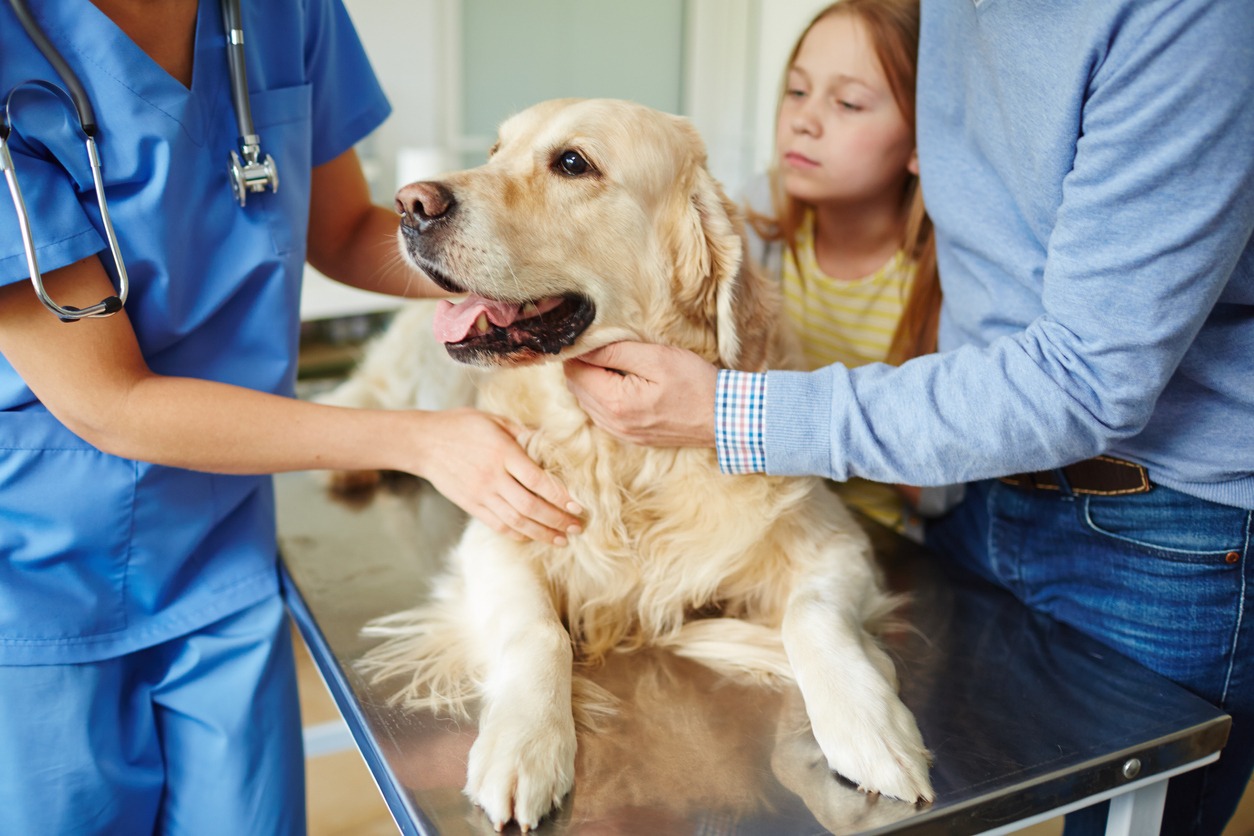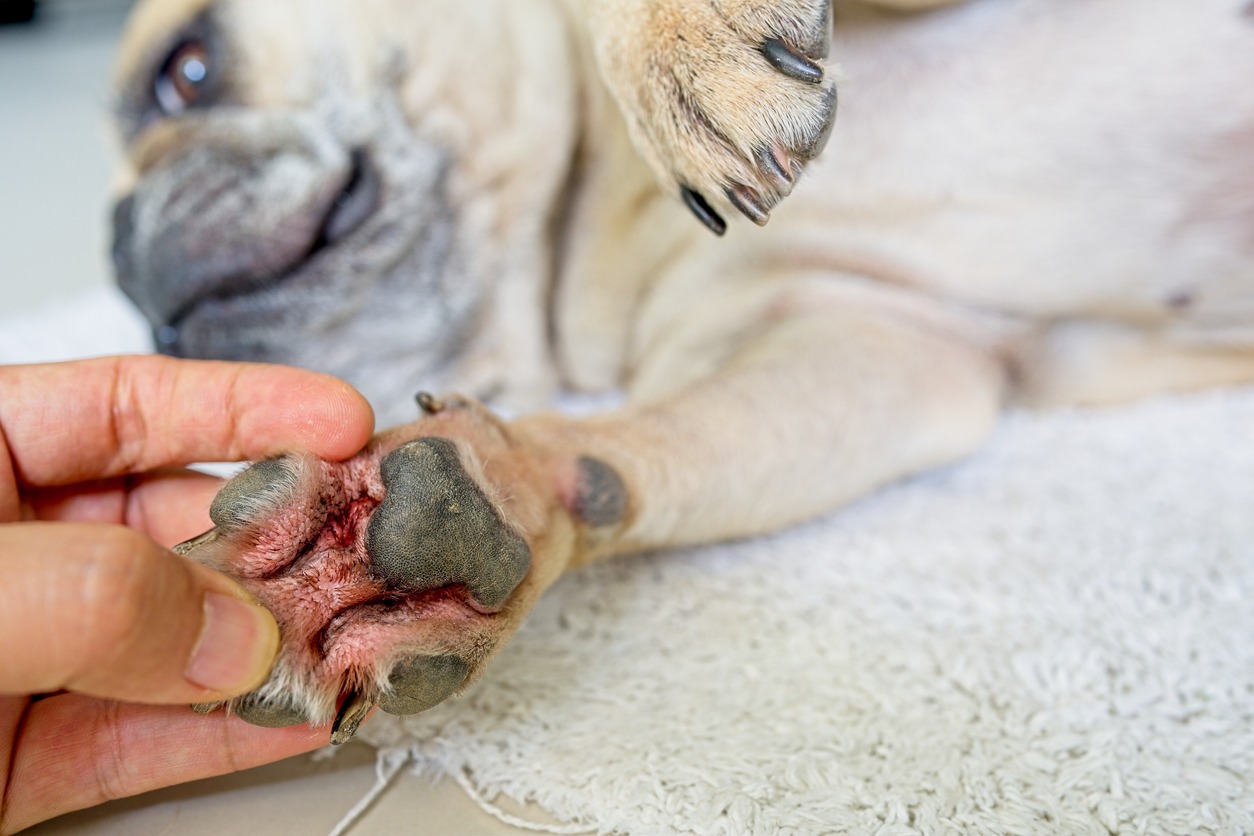Dogs are one of the most beloved and popular pets in the world. Their loyalty, companionship, and endless love make them a valuable addition to any household. As responsible pet owners, it is our duty to ensure that our furry friends are happy and healthy. However, despite our best efforts, dogs are susceptible to various health issues, just like humans.
From allergies to obesity, there are numerous common health problems that can affect our canine companions. These issues not only cause discomfort and pain to our furry friends, but they also incur costly medical bills for pet owners. Fortunately, many of these health problems can be prevented with proper care and attention.
Below are some of the most prevalent health issues in dogs and ways on how to prevent them:
Obesity
Obesity has become a significant concern in the canine population, with studies showing that over 50% of dogs are overweight or obese. This excess weight can lead to numerous health problems, including diabetes, joint issues, and heart disease.
To combat obesity, dog owners should focus on portion control, feeding a balanced diet, and ensuring regular exercise. Engaging in activities such as daily walks, interactive play, and mentally stimulating exercises can help keep your dog fit and healthy.
Dental issues
Dental health is often overlooked but plays a crucial role in a dog’s overall well-being. Poor oral hygiene can lead to gum disease, tooth decay, and even systemic infections.
To maintain healthy teeth, it is essential to establish a regular dental care routine. This includes brushing your dog’s teeth regularly, providing dental chews or toys, and scheduling professional dental cleanings as recommended by your veterinarian.
Allergies
Just like humans, dogs can suffer from allergies. Common allergens for dogs include pollen, dust mites, certain foods, and flea bites. Allergic reactions can manifest as itching, skin irritation, and digestive issues.
To manage and prevent allergies, it is crucial to identify the allergen through allergy testing and eliminate or avoid exposure to it. Your veterinarian may recommend allergen-specific diets, medication, or immunotherapy to alleviate your dog’s symptoms.
Arthritis and joint mobility issues
Joint problems, such as arthritis and hip dysplasia, are prevalent in dogs, especially as they age. Recognizing the signs of joint pain, such as limping, stiffness, or difficulty getting up, is crucial for early intervention.
Strategies to promote joint health include providing a balanced diet rich in nutrients like glucosamine and omega-3 fatty acids, maintaining a healthy weight, and engaging in low-impact exercise. Your veterinarian may recommend joint supplements or medications to alleviate discomfort.
Urinary tract infections (UTIs)
Urinary tract infections (UTIs) in dogs are a common condition that affects the urinary system, including the bladder, urethra, and kidneys. The most common cause of UTIs in dogs is the presence of bacteria, such as E. coli, in the urinary tract. Other factors that can contribute to UTIs in dogs include underlying medical conditions, such as bladder stones or tumors, and a weakened immune system.
Symptoms of a UTI in dogs can vary but may include frequent urination, straining to urinate, blood in the urine, and accidents in the house. If you notice any of these signs, it is important to take your dog to the veterinarian for a proper diagnosis and treatment.
Treatment for UTIs in dogs typically involves a course of antibiotics to eliminate the infection. Your veterinarian may recommend dietary changes, increased water intake, and regular monitoring of your dog’s urine to prevent future UTIs.
Diarrhea
Diarrhea in dogs is a common gastrointestinal problem that can be caused by a variety of factors. It is characterized by loose, watery stools and can range from mild to severe. There are several potential causes of diarrhea in dogs, including dietary changes, food intolerance or allergies, viral or bacterial infections, parasites, or underlying medical conditions. Stress and anxiety can also contribute to gastrointestinal upset in dogs.
When a dog has diarrhea, it is important to monitor their condition closely and take appropriate action. Mild cases of diarrhea can often be resolved by withholding food for 12 to 24 hours and providing small, frequent amounts of water to prevent dehydration. However, if the diarrhea persists or is accompanied by other symptoms like vomiting, lethargy, or blood in the stool, it is crucial to seek veterinary attention as soon as possible.
Your veterinarian can help determine the underlying cause of the diarrhea and recommend appropriate treatment, which may include dietary modifications, medications to control inflammation or infection, and supportive care to restore fluid and electrolyte balance.
Parasites
Parasites and tick-borne illnesses are significant concerns for the health of dogs. Dogs can be susceptible to a variety of parasites, including fleas, ticks, and intestinal worms. These parasites can cause a range of problems, from skin irritations and discomfort to more serious health issues.
Fleas can lead to skin allergies and transmit diseases, while ticks can transmit dangerous illnesses such as Lyme disease, ehrlichiosis, and anaplasmosis. Intestinal worms, such as roundworms, hookworms, and whipworms, can cause digestive issues and, in severe cases, anemia or obstruction of the intestines.
Regular preventative measures, including the use of flea and tick medications, routine deworming, and proper hygiene practices, are essential to protect dogs from these parasites and the potential diseases they carry.
Poisoning
Poisoning in dogs is a serious concern that can have severe consequences on their health and well-being. Dogs are naturally curious creatures, and their tendency to explore their environment with their mouths puts them at risk of ingesting toxic substances. Common sources of poisoning in dogs include household chemicals, certain human foods (such as chocolate, grapes, and onions), medications, plants (such as lilies and azaleas), and outdoor toxins like pesticides or rodenticides.
Symptoms of poisoning in dogs can vary depending on the substance ingested but may include vomiting, diarrhea, drooling, lethargy, seizures, and even collapse. If you suspect your dog has been poisoned, it is crucial to seek immediate veterinary assistance. Time is of the essence in cases of poisoning, and your veterinarian will be able to provide the appropriate treatment, such as inducing vomiting, administering activated charcoal, or providing supportive care to mitigate the effects of the toxin.
Limping
Limping in dogs is a common sign of pain or discomfort in one or more of their limbs. There are several potential causes of limping, ranging from minor injuries to more serious underlying conditions. Common causes of limping in dogs include sprains or strains, fractures, ligament tears (such as an anterior cruciate ligament tear), joint or bone infections, arthritis, and even certain types of cancers.
The severity and duration of the limp can vary depending on the cause. It is crucial to monitor your dog closely if they are limping and seek veterinary attention to identify the underlying cause and appropriate treatment. Your veterinarian will conduct a physical examination, possibly including X-rays or other diagnostic tests, to pinpoint the source of the limping and develop a treatment plan. Treatment options may include rest and restricted activity, pain management, physical therapy, splinting or casting, or in some cases, surgical intervention.
Overgrown nails
Overgrown nails in dogs can be a common issue that can cause discomfort and potential health problems if left unaddressed. Dogs’ nails naturally grow and require regular trimming to maintain an appropriate length. When nails become overgrown, they can curl and start to press against the ground, leading to pain and difficulty walking. Overgrown nails can also become more prone to splitting or breaking, which can be painful and may even cause infections.
In severe cases, long nails can alter a dog’s gait and put excess strain on their joints, leading to joint pain and potential mobility issues. Regular nail trimming is essential to keep your dog’s nails at a proper length, promoting their comfort, mobility, and overall paw health.
Importance of regular vet checkups
Regular veterinary checkups are vital for identifying and preventing common health issues in dogs. These checkups allow veterinarians to detect any potential problems early on and provide appropriate treatment or preventive measures. During these visits, your vet will perform a thorough physical examination, discuss vaccination needs, and address any concerns you may have. By staying proactive, you can ensure your dog’s overall health and well-being.
Role of proper nutrition and exercise
Proper nutrition plays a vital role in preventing various health issues in dogs. A balanced diet with high-quality ingredients can help maintain a healthy weight, promote a strong immune system, and prevent conditions such as obesity, allergies, and gastrointestinal problems. Consult with your veterinarian to determine the best diet for your dog based on their age, breed, and specific health needs.
Regular exercise is essential for dogs to maintain a healthy weight, improve cardiovascular health, and strengthen their muscles and joints. Lack of exercise can lead to obesity, which increases the risk of various health issues, including diabetes and joint problems.
Aim for at least 30 minutes to an hour of exercise daily, depending on your dog’s breed and energy level. This can include walks, runs, playtime, or even agility training.
Why vaccinate your dog
Vaccinations are crucial for preventing infectious diseases in dogs, such as distemper, rabies, and parvovirus. Regular parasite prevention, including flea, tick, and heartworm control, is essential for maintaining a dog’s overall health and preventing the transmission of diseases. Follow your veterinarian’s recommended vaccination schedule and use veterinarian-approved preventive products to keep your dog safe from harmful parasites.
Conclusion
Dogs are prone to various health issues just like us humans. However, by being proactive and taking preventative measures, we can ensure their well-being and happiness. From regular vet check-ups to a balanced diet and exercise routine, there are numerous ways to keep our dogs healthy and prevent common health issues. By staying informed and implementing these preventive measures, we can give our beloved pets the best chance at a long and happy life.





